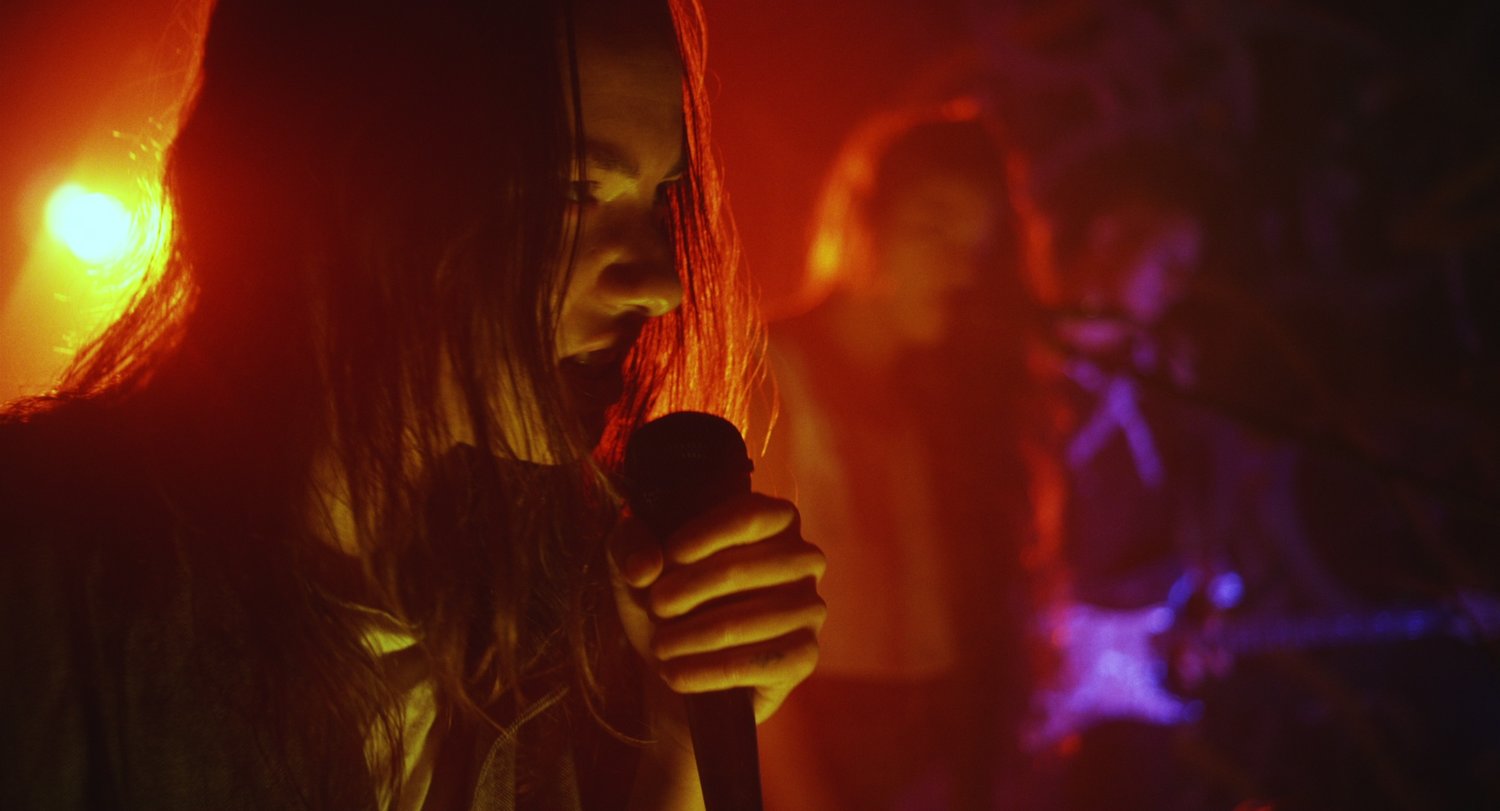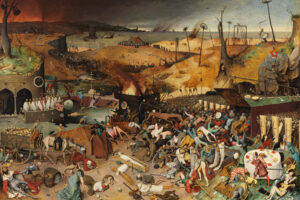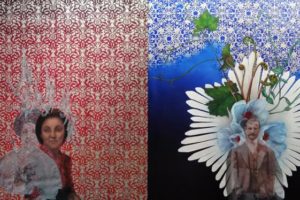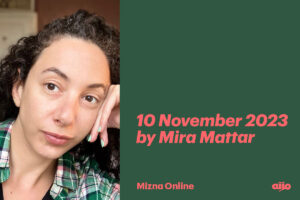
May 29, 2021
Q&A with Empty Metal’s Adam Khalil
This Q&A is presented as part of the Mizna Film Series, a monthly selection which expands our regular film programming to include screenings, critical essays, interviews, and discussions exploring revolutionary forms of cinema from the SWANA region and beyond.
Q. The interplay of surveillance and intuition comes into a clear focus throughout this film. How do these themes show up in your life and your cultural heritage? Why is this combination an important focus throughout the film?
Part of this distinction of surveillance and intuition comes from the fact that many far-left liberation movements are kind of homespun––i.e. there is a power imbalance in terms of the tools of oppression and liberation and somehow through intuitive means the far-left and liberation movements keep coming up and materializing against incredible odds.
In today’s day and age when everything is surveilled and the power of the state far outweighs any kind of organizing––it’s incredibly meaningful to see people-to-people political movements continue to prosper and push back against almost impossible odds.
Q. There’s much talk of “the end of the world” throughout the film. How does the end of the world differ from an apocalypse? Why or why not is this an “apocalyptic” film?
AK: There are certain theories about there being many worlds within this world —with that understanding many worlds have ended—but when a world ends a new one begins – or some kind of circular linearity emerges to create a continuity that is unbreakable. In the film we engage with alternate definitions of the world “apocalypse”—which is to mean a revelation. Part of this relates to the idea of the “commons” or the “common good”—knowing that certain groups are left out of the “commons” also means certain groups are left out of certain worlds. I guess it’s an apocalyptic film in the sense that it’s hopefully revelatory—that it opens up imagainitations to a new political horizon infused with imagination and errantry—a speculative political future we would all like to inhabit.
Q. In an interview for the Images Festival, you touch on how sets of characters in the film were developed to intentionally foster ambiguity, especially in terms of racial identity. Can you expand on this and also explain how the process of screening a film, in different contexts and places, adds or subtracts from this ambiguity?
AK: Part of the idea was to complicate and undermine how representation is flattened in most films. As someone with a mixed background (Egyptian-Ojibway-Scot-German-French mutt 🙂 I think it’s more interesting to engage with both the ambiguity and force of identity. This moment in time is exciting because there’s a clear call for intersectional liberation movements that need to grow and work together. That’s an idea we try to engage with in the film––the unlikely allegiances that will be fostered in these extraordinary times. I think we’re also hoping to question and problematize the notion of who has the right to act on whose behalf––and bring those questions and concerns to the fore.
Q. When you spoke about the film after the Walker screening in 2019, you articulated a notion of the accomplice in lieu of allyship, the latter of which we hear so much about in popular discourses about how to make collective change and how non-BIPOC folks might aid in political organizing and actions. Can you say a bit about how the role of the accomplice differs from that of an ally? And also, how does Empty Metal demonstrate what you mean by this configuration?
AK: A lot of these ideas are cribbed directly Indigenious Action’s Accomplices not Allies: Abolishing the Ally Industrial Complex —which is online for free and I can’t recommend it enough!!
There’s a train of thought that any decolonial act would have to be inherently against the law—and with this understanding, the term accomplice fits better.
The distinction between the two terms—to me anyways—seems to be how one engages with political struggle—an accomplice is clear about their self serving interests and why they are showing up to the struggle. An ally on the other hand might hide their motives and not be transparent about their intentions and desires for change. Allyship to me feels performative while being an accomplice to abolition/decolonization/liberation feels active and engaged.

Adam Khalil (Ojibway) is a filmmaker and artist who lives and works in Brooklyn. His practice attempts to subvert traditional forms of ethnography through humor, relation, and transgression. Khalil’s work has been exhibited at the Museum of Modern Art, Sundance Film Festival, Walker Arts Center, Lincoln Center, Tate Modern, Toronto Biennial, and Whitney Biennial, among other institutions. Khalil is a core contributor to New Red Order (NRO) and a co-founder of COUSINS Collective. Khalil is the recipient of various fellowships and grants, including but not limited to: Sundance Art of Nonfiction, Jerome Artist Fellowship, and Gates Millennium Scholarship. Khalil received his BA from Bard College.












